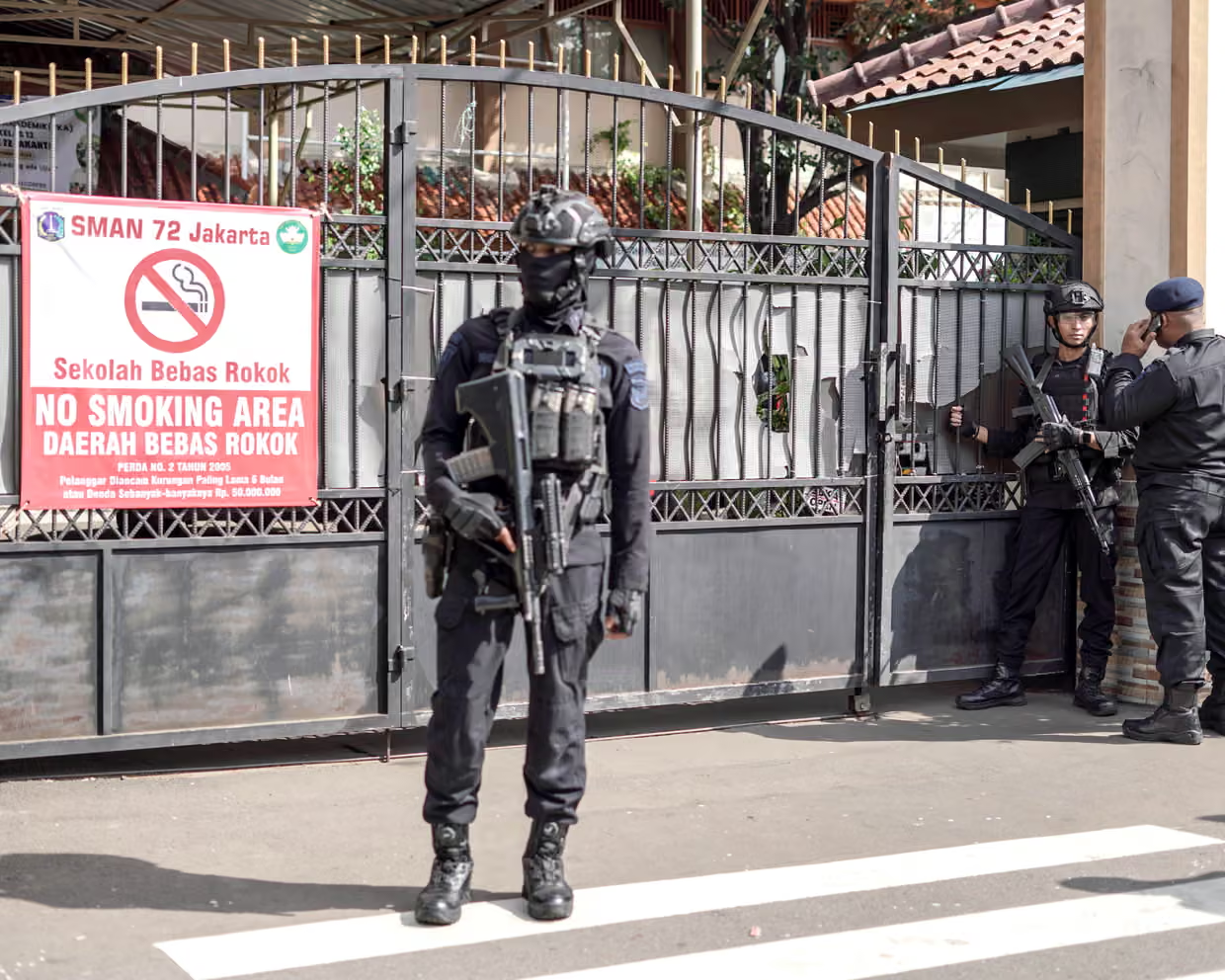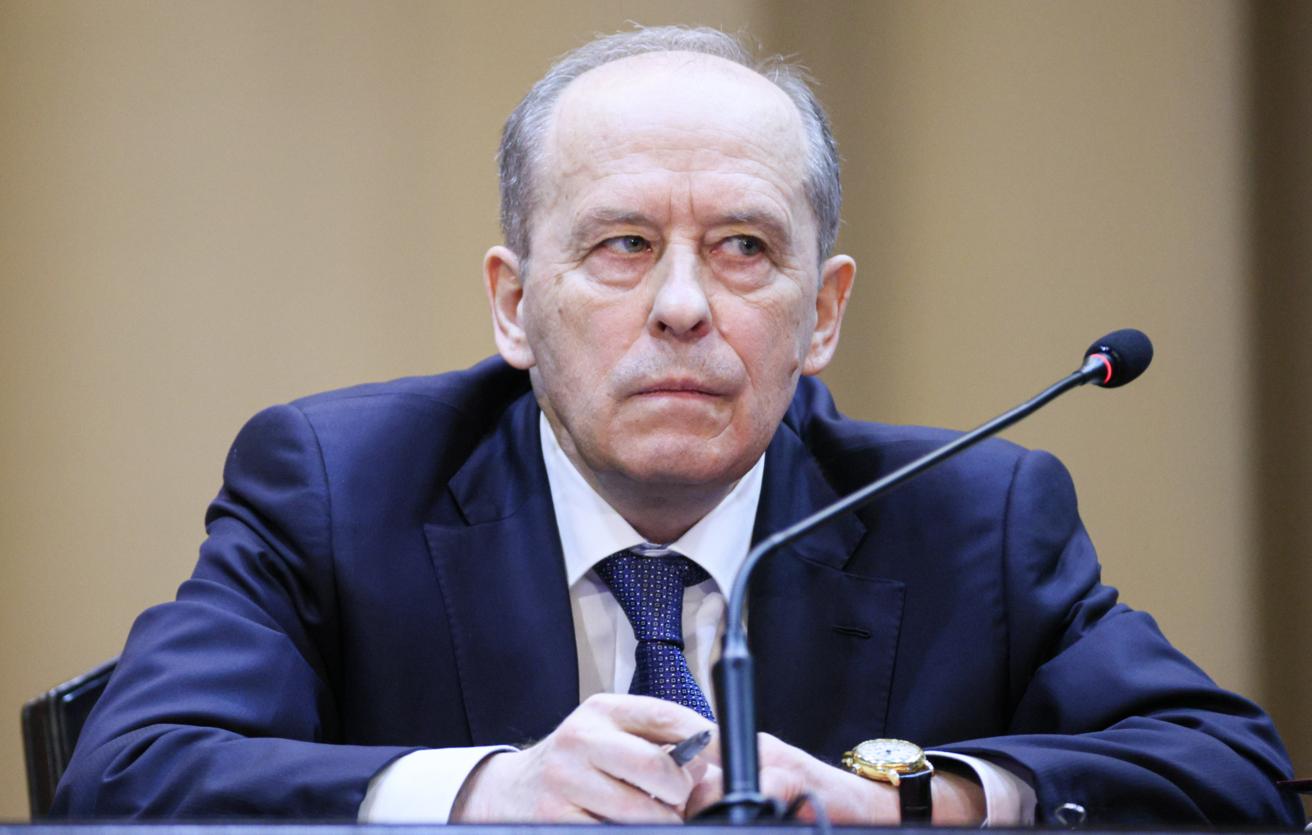
The Militia Politics of Basra
The Militia Politics of Basra
Basra, the second largest and the richest city in Iraq, is at the brink of a major economic and political meltdown. Unless Baghdad succeeds in reaching a compromise over the country’s governmental apparatus (especially over the issue of federalism), the southern city may become the greatest threat to the future of post-Baathist Iraq. Such a threat lies mainly in a struggle for power between Shiite militias and tribal forces who compete for control over oil resources, territorial domination and public capital (hospitals and schools), which are all leading to an erosion of security in a city that is the source of Iraq’s economic life. Although much of this turmoil is a reflection of the unstable nature of the transitional process, the current situation in Basra may represent a future scenario for Iraq that is made up of political factionalism and devoid of a functional government [1].
At the center of Basra’s meltdown lies the ongoing conflict between different Shiite factions, mainly vying for control over Basra’s energy industry and oil smuggling. Domination over local governance through confrontation, and at times violence, has become the routine method of conducting politics in a city that appears to be breaking apart into territories governed by different militias. Such political conflict, however, also includes competing visions of post-Baathist Iraq, as each Shiite militia advocates a particular ideological agenda (regionalist, nationalist and sectarian), while seeking popular support from various segments of the Shiite community in Basra and other southern cities.
The Fadhila Party
The Fadhila Party (Virtue Party) is a case in point. An offshoot of the original Sadrist movement in the mid-1990s, when Moqtada al-Sadr’s father, Ayatollah Sadeq al-Sadr, led a nativist Shiite movement to oppose clerical traditional authorities in Najaf and the Baathist regime in Baghdad, Fadhila emerged as a major Shiite party in Basra in 2003. With its own militia and support from the city’s professional class sympathetic to the Sadrist millenarian ideology, the party managed to win local elections and gained the allegiance of smaller Shiite parties, such as Wifaq and Harakat al-Dawa, for the control of the provincial council in January 2005.
On the level of religious ideology, Fadhila is a millenarian nativist movement and the party has many supporters among Basra regionalists who envision an autonomous Basra province that includes Maysan and Dhi Qar governorates. Ayatollah Muhammad Yaqubi, a student of Sadeq al-Sadr and the head of Fadhila, who is based in Karbala, opposes al-Sadr and sees him as a rogue cleric who is taking advantage of his father’s legacy to gain power. Yaqubi also opposes Iranian influence in Shiite Iraq—even the authority of Grand Ayatollah Ali al-Sistani, an Iranian-born cleric based in Najaf. Since 2003, Yaqubi has tried to form a strong alliance with Grand Ayatollah Kadhim Haeri, based in the Iranian city of Qom, who is regarded by some Sadrists as the successor to the late Ayatollah Sadeq al-Sadr, the main rival of al-Sistani throughout the 1990s [2]. The move can be recognized to highlight Fadhila’s attempt to strengthen native Iraqi clerics in order to counterbalance Iranian influence in the province.
In January 2005, Fadhila moved up the political ladder in the United Iraqi Alliance (UIA) in the interim government, but only to face major obstacles from the Nuri al-Maliki-led government later in 2006. Under Ibrahim al-Jaafari, the party was in charge of the oil ministry, but when al-Maliki’s government came to power the Fadhila minister was replaced by Hussein al-Shahristani, a prominent Shiite politician and scientist with no ties to the militia politics in Basra. When Fadhila withdrew from the unity government in May 2006, the party began to concentrate on local politics as a way to maintain control over the oil industry and trafficking. It was at this juncture that conflict with other rival Shiite groups, including tribal forces, began to escalate (Azzaman, May 16, 2006).
Fadhila Challenges Legitimacy of the SIIC
Realizing the influence of the Supreme Islamic Iraqi Council (SIIC), which was also present in the city council and the police force, Fadhila sought ways to challenge the legitimacy of the rival group. As journalist Juan Cole described, the governor of Basra and member of Fadhila, Muhammad Misbah al-Wa’ili, accused the chief of police of allowing the continuation of political assassinations [3]. The accusation was made in a way to discredit the Badr Corps, the SIIC’s militia, which had maintained influence in the city’s police force through the Interior Ministry. Tensions between local groups and the SIIC grew when a major tribesman was assassinated in May 2006. The Karamishah Marsh Arabs attacked the SIIC’s headquarters, accusing the Badr Corps of carrying out the assassination. Immediately after the event, followers of the SIIC and militia groups linked to the Badr Corps, namely Tha’r Allah (Revenge of God), formed demonstrations against the governor [4]. With the rise in tension between Shiite militias and tribal rivals, al-Maliki quickly stepped in later in May to establish security by declaring a month-long state of emergency in the city (Baztab, May 30). At present, frictions in the Basra government continue to grow, especially between Fadhila and the SIIC, as nativist political parties (such as Harakat al-Dawa) accuse the Badr militiamen of being agents of Tehran and advancing Iranian interests in Basra.
Fadhila and al-Sadr Compete for Basra
With the reemergence of al-Sadr on the political scene in spring 2006, Fadhila faced another Shiite contender. Although conflict between the two groups dates back to spring 2003, al-Sadr failed to establish a strong base in Basra. After the 2004 uprising against the United States that led to the destruction of Najaf, the Sadrists lost even more support in the city, especially among the professional class who saw al-Sadr as an uneducated, unruly cleric. When al-Sadr began to rise as a major political figure in the UIA in 2005 and Basra began to experience greater economic hardship because of corruption in the oil industry, many younger Iraqis from the poorer parts of the city, in places like the northern district of al-Hayani-e, started to support al-Sadr [5].
Fadhila-Sadr relations are as complex as Shiite Iraqi politics. Although the two parties rely on the legacy of Sadeq al-Sadr to legitimize their prestige, they both compete for greater influence in southern politics—in the case of Fadhila, this is limited to Basra. They also share a nationalist interest, however, to curtail the influence of SIIC leader Abdul Aziz al-Hakim, who envisions a nine-province federal state, in which Basra would be the capital of the Shiite-dominated southern region. Fadhila, however, rejects al-Sadr’s tendency for a tightly centralized government based in Baghdad (or Sadr City). Fadhila believes that Basra should become an autonomous regional power with the oil revenues under the control of the city, while distributing the wealth to the other parts of the country [6]. Competing visions of a future Iraqi government are the fundamental elements of the Fadhila-Sadr conflict.
There are also accusations of corruption and mayhem, however, which the two parties use to discredit each other. Fadhila’s control over the oil industry has been a major problem for the Basra-based party. Wa’ili, the governor, functions as the head of Iraq’s Southern Oil Company, which administrates the province’s oil industry (Azzaman, April 30). He is also well connected to wealthy oil traders [7]. Al-Sadr accuses Wa’ili and his party of involvement in oil trafficking that creates shortages of oil for the country, especially in Baghdad and the Sunni provinces in western Iraq (United Press International, April 17). Accordingly, members of the Mahdi Army are accused of infiltrating the police force, which has been blamed for political assassinations since 2005 (Azzaman, March 27). In reality, the followers of al-Sadr also operate in the oil smuggling business, controlling Abu Flus port, which is a major center for the export of crude oil sold on the black market (The Guardian, June 9). Amidst such rivalry, Wa’ili’s provincial government faced a major defeat when in April the provincial parliament—which included smaller Shiite groups like Master of All Martyrs and Hezbollah (an offshoot of the Da’wa party)—almost unseated him and challenged Fadhila authority in the local parliament (International Herald Tribune, April 28). The blow to Fadhila’s power has allowed al-Sadr to increase his influence in Basra’s provincial parliament and expand his popularity among the urban poor, who view Fadhila as corrupt.
As al-Sadr attempts to widen his influence in Baghdad, the two rival factions have grown more confrontational in Basra. In March, after British forces departed the city, the headquarters of the Fadhila party was destroyed, later leading to urban clashes between the Mahdi and Fadhila militias (Voices of Iraq, March 23). The two parties have tried to play down their differences, but in reality the Sadrists will continue to push for domination over oil commerce and Fadhila will most certainly fight to retain its tenacious hold on the Southern Oil Company (Azzaman, March 27).
Seen in this context, the Fadhila-SIIC-Sadr feud has been largely over control of local politics. Provincial politics, especially in terms of control over territorial domination in what can also be called the politics of “fiefdom,” have been central to the balance of power between vying Shiite militia groups. Basra is now undergoing a militarization of local politics as a weakened Baghdad government loses control of its southern provinces. Such militarization processes, however, are also linked to oil trafficking, as profit made from smuggling helps the militias and preserves the factional politics of the city.
Other Factors Destabilizing Basra
Other major factors will play a role in the destabilization of Basra. One problem concerns tribe-militia relations. Many tribes face major challenges from urban militias, especially formerly exiled Shiite groups such as the SIIC, as competition over territorial domination and oil trafficking grows with the expansion of militia power. The increase in Shiite-Sunni conflict also represents a major factor. Since the Samarra bombing in February 2006, Sunni communities continue to face the wrath of Shiite militias (Baztab, June 20, 2006). In May 2007, for example, nearly 170 Sunni mosques were closed for security reasons in response to the assassinations of a number of Sunni clerics (Baztab, May 27, 2006). With a long history of religious movements, Basra is also witnessing the rise of new millenarian currents, namely the movement led by Karbala-based Ayatollah Mahmud al-Sarkhi al-Hassani, who has gained support from disgruntled Sadrists. All of these developments could trigger further instability in a city devoid of a functioning government.
What is Iran’s role in this complicated political landscape? For the most part, Iran’s influence in Basra has been significant yet limited. Since the 1950s, Basra has been a major hub for Iraqi nationalism (mainly the version advocated by non-Baathist nationalists like Abdul Karim Qasim), and many Shiites (including nativist parties like Fadhila) are highly suspicious of any Iranian presence in the city. As numerous attacks on the Iranian consulate in the city indicate, anti-Iranian sentiments run high in Basra despite Tehran’s efforts to create new alliances with local Shiite factions, especially with the Sadrists (Baztab, June 14, 2006).
This does not mean, however, that Iran is absent from Basra’s socio-economic life. Cultural and economic ties between Basra and Iran have grown strong since 2003. Farsi is now spoken as a second language, and many Iranian goods are sold in the Basra markets (Baztab, May 23). The Iranian toman is a major currency in the Basra banking system, and many use it in the open markets of the city. As for oil, the importation of Iranian (refined) oil has increased from 8 million to 11 million liters a day, and some Iraqi crude oil is also refined in the Abadan and Kermanshah refineries (RFE/RL Iraq Report, September 2006). As for military operations, Iranian intelligence officers are reported to reside in the city (some of them have dual citizenship), and they travel freely between the two countries through the Shalamcheh border crossing [8].
Implications
Although Iran’s impact on the daily life of Basra cannot be ignored, the internal politics of Basra remain critical to the stability of the city. Overall, the problem in Basra is a localized conflict with ties to Baghdad’s political process. The rapid recovery of Basra from militia politics would require the following:
1. On immediate terms, the Basra oil industry (production and distribution) should come under the direct control of Baghdad, ideally under the supervision of Basra natives who have no links to any of the militia groups. This move is crucial, as militia jurisdiction over the production and distribution of oil plays a central role in the consolidation of militia power in the city.
2. Accordingly, the containment of militia politics will depend on the strong presence of an Iraqi force trained in Baghdad and comprised of non-militia forces with no ties to local militia groups. Although a major undertaking, this could help bring some stability to the city by replacing officials linked to militia with non-militia officers who would receive their orders directly from the prime minister.
3. Baghdad should not only rely on the clerical circles in Najaf to contain the militias since much of the infighting between militant factions in Basra regards the control of local politics. Although Najaf may influence the SIIC and the Sadrists (although not necessarily enough to disarm the militias), it will most likely fail to persuade Fadhila, which is suspicious of the “quietist” school of thought advocated by leading Najaf clerics. In a significant sense, the Basra Shiite religious community, a major part of which is comprised of Fadhila, can be described as largely regional-nationalist in contrast to the conservative orthodoxy based in Najaf or the transnational Islamists led by Tehran. This point should be kept in mind as anti-Najaf millenarian movements continue to grow in southern provinces (especially in Karbala) and anti-Iranian sentiments remain strong in Basra.
The opinion regarding the U.S. and British role in the political order of Basra is clear: it is dangerous to become involved. One of the gravest mistakes made by the British since 2003 was their overwhelming reliance on the Badr Corps to impose order on the city and its suburbs. By taking sides, Britain has (unintentionally) shifted the balance of power by allocating too much authority to the Badr Corps. Although British forces have contributed to most of the security in the city since 2003 (despite the argument that they have also failed to do so because of their inability to quash the militias), the stability of Basra will largely depend on a multi-sectarian Iraqi army administrated from Baghdad, not an occupied force or a militia faction. Furthermore, the main problem with overtly (or clandestinely) strengthening or arming one of the factions is that it could entail unintended consequences that most likely would harm the country rather than contribute to its stability.
Conclusion
For the time being, Baghdad remains Basra’s worst enemy. The lack of a stable and relatively centralized government, at least in this transitional stage, is at the heart of the problem. Without a stable government, Basra is destined to experience the sort of violence that Beirut suffered two decades ago. A major civil-militia war in Basra seems imminent, and the consolidation of a centralized Iraqi government (including administrative and non-sectarian federated features) may possibly be the country’s best solution. Basra’s meltdown could well foretell the future of Baghdad as a failed state. Even worse, it could mean the unraveling of a dysfunctional city that may threaten the stability of the Gulf region and beyond.
Notes
1. For a recent study of Basra that argues this point, see International Crisis Group, “Where Is Iraq Heading? Lesson From Basra,” No 67, June 25, 2007.
2. The alliance was never formed, perhaps, as a follower of al-Sadr suggests, due to Haeri’s close ties to the Iranian government. Author interview, Najaf, Iraq, August 7, 2005.
3. See Iraq: Preventing A New Generation of Conflict, edited by Markus E. Bouillon, David M. Malone and Ben Rowswell, London: Boulder, 2007.
4. Ibid.
5. Including al-Amarah, some of the Basra branch of the Mahdi Army is based in this northern district, where Abu Qadir, a major officer in al-Sadr’s militia, was killed in early June 2007 by British forces. Baztab, June 5, 2007.
6. Reider Visser, Basra: The Failed Gulf State: Separatism and Nationalism in Southern Iraq, Münster: New Brunswick, 2005.
7. In fact, he comes from an affluent family of oil merchants. Author interview, Basra, Iraq, August 13, 2005.
8. Author interview, Basra, Iraq, August 13, 2005.


